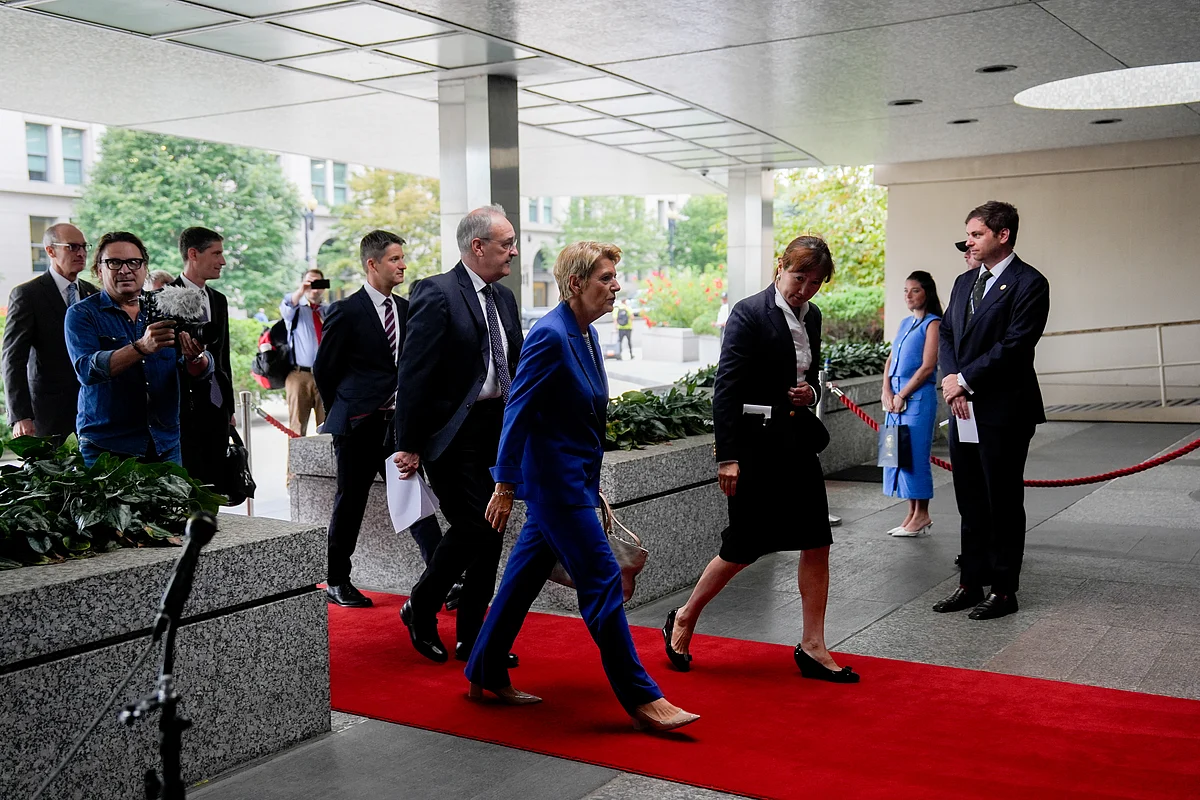Phase 2: Procedure
In May and June, the office of US Trade Representative Jamieson Greer held more than 20 rounds of talks with the Swiss. Negotiations occurred frequently via video calls, sometimes even by WhatsApp.
Bessent was looped in, and on June 23, Keller-Sutter had a phone call with him and said they’re close to an agreement.
A few days later, there was a draft. It contained a clause that Swiss drug makers would no longer seek to source certain ingredients from China.
There’s different understandings of what happened next. Some people said that Bessent, Greer and Commerce Secretary Howard Lutnick signaled to Swiss negotiators that they’d support the accord in front of the president. Others said the US officials made clear to their Swiss counterparts they would simply brief the president on the positives and negatives of a potential deal but the final decision rested solely with Trump.
The idea that there was a completed deal that US Cabinet Secretaries pushed to Trump is inaccurate, one of the people said.
In Bern, Keller-Sutter and her fellow ministers still hadn’t heard directly from Trump. But they decided to rely on the word of his ministers and gave their formal approval on US Independence Day.
Phase 3: Catastrophe
Keller-Sutter says that in late July Greer’s office told Swiss negotiators that it would be helpful if she asked for a phone call with the US president. She did so.
One person familiar with the matter said the Swiss decided on their own to call Trump.
The conversation that changed everything for the Swiss started at 2 p.m. Washington time on July 31.
After offering congratulations for Switzerland’s national holiday the following day, Trump hit Keller-Sutter with an accusation: her nation was stealing from the US, he said, pointing out a trade deficit he rounded up to $40 billion.
The Swiss were caught off guard as the bilateral balance hadn’t come up in previous talks. They were comfortable they’d defused the issue by noting that the deficit in goods was almost completely offset by imports of services. They also highlighted that the country was the seventh-largest foreign investor in the US.
On the phone, the Swiss president — a stoic politician not prone to dramatic gestures or punchy one-liners — took the stance that Switzerland stands by its word and the pre-negotiated draft accord. If there was disagreement, it was no deal over a bad deal.
